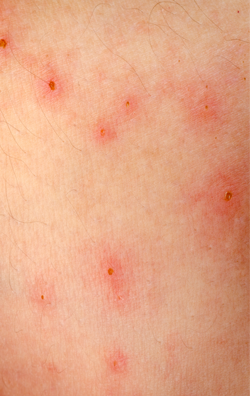
Alcohol poisoning is one of the life threatening complications of chronic alcoholism. This condition usually arises following intake of large amount of alcohol within a short span of time. Consumption of large amount of alcohol within a short span of time may affect different systems of the body, namely respiration, heart rate, body temperature maintaining centre which ultimately may lead to death of the person.
Common symptoms of alcohol poisoning include abnormal elevation of mood, flushing of skin, uncoordinated movements, loss of physical inhibitions, etc.Alcohol poisoning may also occur in adults or in children following accidental or incidental intake of alcohol containing beverages. Alcohol poisoning is to be managed immediately and thus require immediate hospitalization.
Symptoms
Alcohol poisoning usually presents with the following symptoms; these are
1. Clouding of judgment which starts as confusion
2. Nausea and vomiting due to direct irritant activity of alcohol on the gastric mucosa and impairment of normal functioning of the semicircular canal in the inner ear
3. Slowing of respiration following inhibitory effect on the respiratory centre; the respiratory rate can be as slow as eight breaths per minute
4. Irregular respiration; usually the gap between two respiration become greater than 10 seconds
5. Inadequate oxygenation (due to slow and irregular breathing) to different body parts lead to bluish tinge of the skin however the skin may also look pale
6. Fall in body temperature due to inability of the temperature centre located in the brain (hypothalamus) to maintain normal body temperature
7. Sudden black out and inability awaken the affected person.
Alcohol poisoning could lead to fatal outcome if not managed timely and adequate so immediate treatment is required.Number of serious complications may arise due to alcohol poisoning all of which may lead to death. These complications include
1. Choking: vomiting is one of the important presenting symptoms of alcohol poisoning and also gag reflex is suppressed in alcoholism so there is increased chance of choking especially if the affected person becomes unconscious, one of the common presenting features of alcohol poisoning. So one should try to make the person suffering from alcohol poisoning to sit up and if it is not possible then one must turn the patient’s head sidewise during vomiting
2. Stoppage of respiration: this may occur due to suppression of the respiratory centre in severe degree of alcohol poisoning or following accidental inhalation of the vomit in the lungs
3. Severe degree of fluid loss (dehydration): it may also lead to rapid heart rate (tachycardia) and dangerously low blood pressure
4. Convulsion: episodes of convulsion may occur if the blood sugar level drops to a very low level (hypoglycemia) which is very common in acute alcohol poisoning
5. Fall in body temperature (hypothermia) to such an extent that heart may stop functioning
6. Irreparable brain damage may also occur
7. Finally if not managed adequately and within time each of the above mentioned cause individually may lead to death
Causes
Other than alcoholic beverages alcohol or ethyl alcohol is found in different household products like mouth washes, cooking ingredients, certain drugs, etc. Isopropyl alcohol is a type of alcohol which is common in cleaning solutions etc and ethylene glycol common in antifreeze materials, paints may lead to separate set of presenting symptoms and also require immediate management to prevent any long lasting damage including death.
Binge drinking is one of the common things which may lead to alcohol poisoning. Binge drinking is consecutive consumption of five or more drinks in males within two hours or four or more drinks in females.
Unlike other food material alcohol is absorbed very quickly by the digestive tract and takes about an hour to get metabolized by the liver. In case of mixed drinks there is more than one serving of alcohol making metabolism rather a complicated one requiring more than an hour.Risk factorsCommon risk factors include body weight and size of the person; generalized health condition, being on an empty stomach always have a negative effect, tolerance level of the person, the rate and amount of intake of alcohol, if combinations of alcohol and other drugs are consumed etc.
Treatment
The mainstay of treatment of alcohol poisoning is to give supportive care until the body removes the toxic metabolites of alcohol. Supportive care include regular monitoring of the vital signs of the patient, maintenance of body temperature, drugs to control blood pressure, respiration problems, oxygen inhalation, drugs , fluids and vitamins etc are to be bought.





